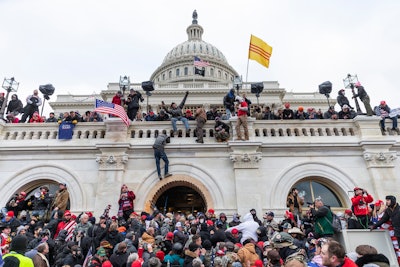
Dr. Manisha Sinha, the James L. and Shirley A. Draper Chair in American History at the University of Connecticut and an expert on the Civil War and slavery, taught a seminar on Reconstruction last January.
“Most of my students could draw the parallels between what happened then and now,” said Sinha. “The main takeaway that I tried to convey was how contested and fragile American democracy has been, something that had not occurred to many Americans, including my students.”
It was easy to connect the dots from January 6 to the only successful government coup on American soil, which happened in 1898 when white supremacist groups violently ousted the democratically elected, biracial government of Wilmington, North Carolina. All elected leaders were expelled from the city, Black properties were destroyed and hundreds of people were murdered. After the end of Reconstruction, white supremacists created the “lost cause” myth and rewrote the legacy of the Civil War, turning Confederate soldiers into heroes “rather than traitors who committed treason to uphold slavery,” said Sinha.
“We have only now started taking down Confederate statues which are monuments to men who tried to destroy the American republic. We cannot let that happen again,” Sinha said.
Sinha hopes that higher education professionals have since realized the importance and value of teaching American history and the humanities. Knowing the past should be a “precondition of good citizenship,” she said.
“I was hoping that American citizens and leaders of both parties would condemn the attempted coup. Unfortunately, virtually an entire party is now defending the insurrection and ‘the Big Lie,’” said Sinha. “I fear that voter suppression laws will lead us into another Jim Crow era. If that happens, it will destroy democracy in this country and may even spell the end of the American republic.”





















